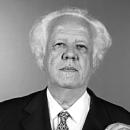
High-court judges fail to reveal conflicts of interests
MÁS EN ESTA SECCIÓN
It's no secret that judges are obliged to openly recuse themselves from cases involving companies where they own stock or have a history. Yet in 26 instances from 2010 through 2013, 16 high-court judges didn't bother to reveal their conflicts of interests.
An investigative report from the Center for Public Integrity found that across the county, more than a dozen circuit court judges, at the second-highest level in the judiciary system, proceeded with 26 cases despite financial or personal conflicts of interests, calling into question whether those cases were tried fairly as well as a larger issue of public trust in the justice system.
That trust is gone for the Ramirez family, who lost Guillermo Ramirez last year. Cancer killed Ramirez when he was just 58 years old, two years after Judge Joel Dubina along with two other judges agreed with a jury verdict that the DuPont chemical Ramirez used on his Florida strawberry fields was not harmful to humans. Judge Dubina never disclosed that he owned $15,000 DuPont stock. The Ramirez family said that they were looking to reopen the case and to receive a fair trial for their husband and father.
Another conflict of interest case involved Philadelphia judge for the U.S. Court of Appeals, Jane Roth, who was contacted by the Center for Public integrity for hearing a case that involved Procter and Gamble, a company where she owned stock. The judge's clerk released a letter last month to the parties of the the 2010 case, Ruth Koronthaly v. Loreal USA, Inc., admitting the conflict of interest as the first step to reopening the case.






DEJE UN COMENTARIO:
¡Únete a la discusión! Deja un comentario.